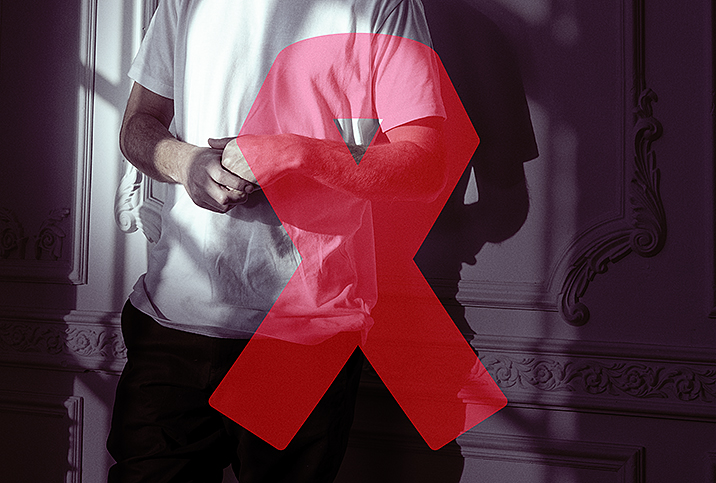FDA Approves Injectable PrEP to Prevent HIV Transmission

Since the emergence of pre-exposure prophylaxis (PrEP) as a safe, reliable and fairly accessible way to prevent HIV transmission, the eyes of the medical world have looked toward the next revelation in HIV prevention. It came in December 2021, when the FDA approved a new injectable form of PrEP, Apretude, helping to expand and improve upon existing options.
However, it's difficult to translate the crucial nature of disease-preventing options such as PrEP to the public, and when you factor in the element of actually administering medications to people within the required parameters, the potential impracticality of it all begins to feel a little frustrating.
"In Louisiana, we're really hoping we can get our public health units on board to be sites where individuals could go in and get the injection done," said Christine Brennan, Ph.D., a registered nurse in Louisiana and associate professor at Louisiana State University's School of Public Health. "Across state lines, HIV awareness and the continued invocation of prevention methods to meet the needs of many different people continues to be an uphill battle."
Benefits, simply stated
"Let's face facts. If we can get the same effects with something, and we don't have to do it quite as much, we want to do that," said TJ King, an outreach specialist with the Nebraska AIDS Project in Lincoln, Nebraska, reflecting the limitations of the pill form of PrEP: patient adherence.
King also said it's easy to see how far we've come in terms of HIV research. Prevention medicines, in particular, hold heavy weight in the fight against HIV transmission.
"I wish that would have been something about 20 years ago, because a lot of my friends would still be around," King said.
With daily PrEP in pill form enjoying remarkable success worldwide, some may wonder how an injectable, longer-lasting form of the medicine really expands upon the market in any significant way. When it comes to HIV prevention and care, no effort to better serve every individual affected should be considered excessive.
King explained medicines like these have the chance to be of particular importance to "those underserved communities that are sometimes forgotten about. Let's face it, not only is there a stigma that goes with HIV, but it also costs a lot of money to fight."
King noted how HIV taxes communities emotionally, intellectually and socially in ways hard to quantify. In that sense, he said, there are a handful of populations that might benefit from new options on the market more than others.
Not-so-simple statements
"I would like to see it in those areas that are underserved. Those Black and Brown communities, those communities that are forgotten about," King said. "But herein lies the problem: A lot of people are not going to inquire about it simply because there is some type of medical mistrust in those communities. Not to mention, they may feel like it's out of reach. A lot of people may not necessarily have insurance, so they feel like it is sometimes unattainable."
Families and individuals should be aware of options that mitigate the personal costs and inconveniences of health care, including costs associated with preventive health, King said.
"What a lot of people don't realize is that there is zero-dollar co-pay assistance and things like that—and people just don't know," he said. "So, I think our key is getting out there and educating people so they know what they have out there to battle this disease."
HIV prevention has complicated components. One worth mentioning is the crucial nature of consistency for those considered at-risk of transmission. People who struggle to get consistent access to health services or even somewhere to shelter may benefit from an HIV prevention method with less frequency attached. But there are also added questions and concerns to think about when it comes to the actual application of treatment and follow-up services.
'What a lot of people don't realize is that there is zero-dollar co-pay assistance and things like that—and people just don't know.'
"I definitely think it's something that will be beneficial [to homeless populations], but then again, how do we track that? How do we make sure that they're doing what they're supposed to be doing?" King said. "I think that we need to be able to bridge that gap, and education is the key to doing that. But I definitely think that this would be something which could help that homeless population quite a bit."
In this way, King described social services as nearly adjacent to preventive medicine. Even with those concerns in mind, he's still excited about all new developments in HIV prevention and care with the potential to serve patients most in need.
"We're real quick to throw away people," King explained. "We're real quick to say that people are expendable and that people don't matter—until it happens to us. And then we want to fuss and then we want to fight and then we want to howl at the moon about all of the injustice that goes on. We need to get to that point before it gets to that point. So, I am a very strong advocate for serving those people that are underserved or those people that might not be looked at as worth saving."
Barriers to care and prevention
"We are talking about everything at one site, and to be quite honest with you, this could be absolutely, fantastically, wonderfully done—if, in my opinion, artificial barriers were not being put up," Brennan said.
Of course, every aspect of the medical industry is designed to serve a slightly different function, but Brennan indicated there are some potential service overlap areas that might allow for a more even spread of care administration.
"Pharmacists are allowed to give vaccines, and technically, pharmacists are allowed to administer medication, including injectable medication, but the pharmacists don't want to be doing this," she said.
Seemingly slight inconveniences to patient options and accessibility like these lead to fewer people utilizing potentially vital services. Brennan said these types of impediments don't have to exist, but a willing effort must be made to overcome the hurdles.
"We can make this work easier if we just choose to do that," she added, noting there are some real challenges ahead when it comes to effectively implementing new HIV prevention options. "The one part of it that's a little bit difficult is the fact [an] HIV test has to be done at the time of injection. That means the person who's giving the injection basically has a responsibility to be testing someone for HIV, which also means possibly giving them a positive diagnosis. So, you can't just have anyone be doing it."
In order for PrEP to be effective, a person must be HIV-negative at the time of treatment. So, it's hard to say what the workaround is to this particular issue short of creating more qualified individuals to handle the increase in demand when it comes to testing and administering the medicine.
As far as the type of patients who will benefit most from an injectable form of HIV prevention being on the market, Brennan expected that young people will likely take advantage the most. For older people, "The way I look at it is that if you're already taking a pill once a day for something else, what's one more pill?"
The logic here is fairly self-evident, but basically, the likelihood of a person utilizing daily medicines increases as they get older, and since PrEP is already available in a once-a-day pill form, it isn't too much to ask that a person just fold PrEP into their already-existing medication program.
"But I also like the fact that, even though currently PrEP requires an interaction every three months, this [new medication] would require an interaction every two months, and every time that there's a provider interacting with a patient, there's a potential for a good outcome," Brennan said.
Know your needs, ask a doctor
Everybody has different sexual health needs, and new questions pertaining to safer sex will continuously arise.
Talking to your doctor is the best way for you to have your unique life circumstances considered when it comes to sexual health risk. Barrier protection methods can be effective but come with flaws; daily PrEP is great but requires a certain level of daily accountability to go with the convenience. If you're interested in making use of an injectable, longer-lasting form of PrEP, it's best to bring those questions to your doctor.
More options for HIV prevention are always a good thing. Even though new solutions come with complications, there's no denying the value of innovations that save time, money and, most of all, human life.




















